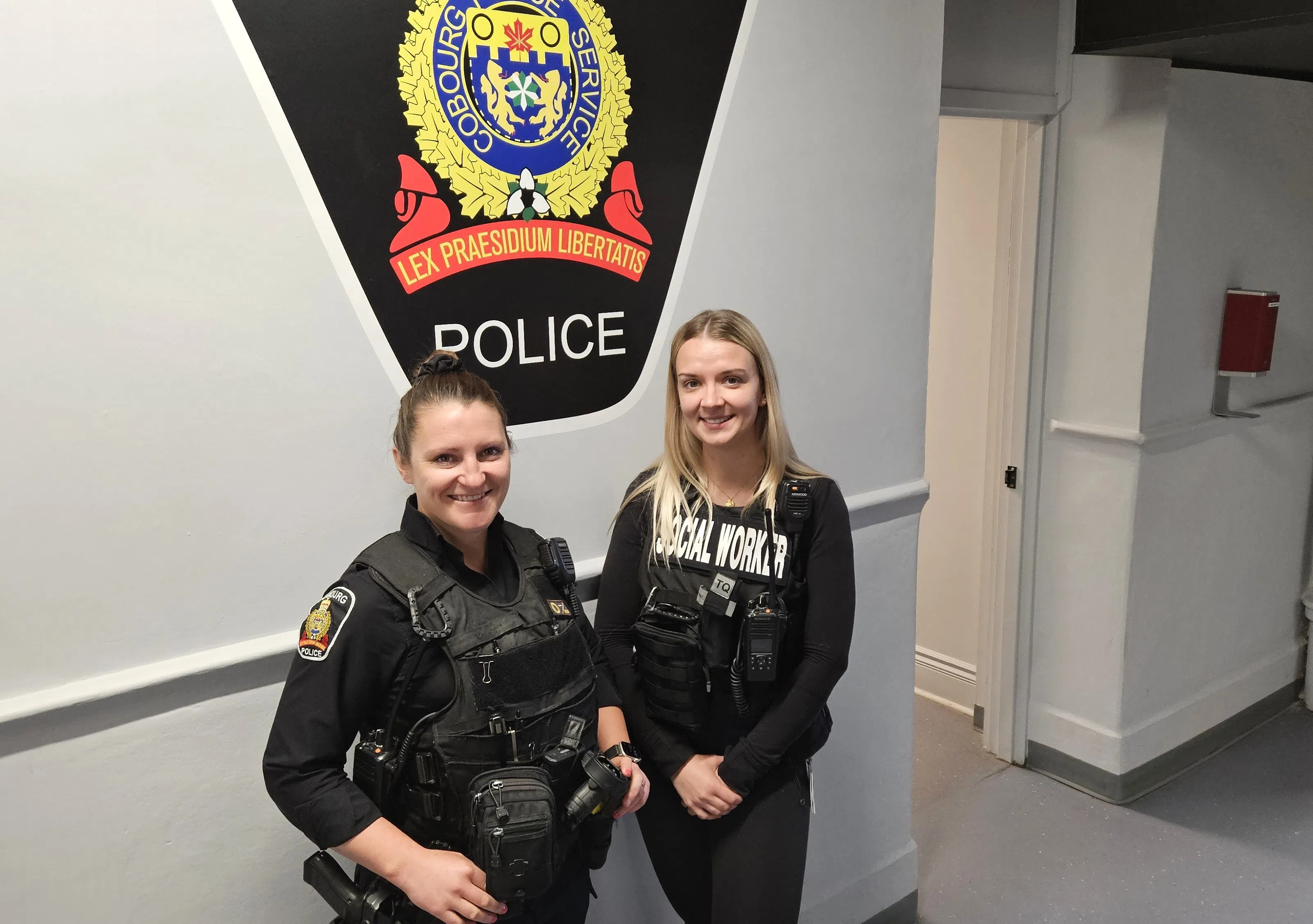
As mental health-related calls continue to increase, the M-HEART team has expanded in Cobourg, says police Chief Paul VandeGraaf.
Also known as the Mental Health Engagement and Response Team (M-HEART), the launch of the team – which brings experts in mental health and front-line officers together – was first announced back in 2018.
In recent years, the Cobourg Police Service has continued to report steady increases in overall calls for service through its annual reports, as well as spikes in mental health-related calls and other areas such as suspected overdose calls.
Increasingly, police – and other area first-responders – continue to also be called to more life-saving events where they’re tasked with performing CPR and administering naloxone as the opioid epidemic rages on.
In its 2023 annual report, the service detailed a 22 per cent jump in calls for service, along with a 13 per cent increase in mental health-related calls, as an example. (This is the latest published report available.)
Similarly, in the 2022 annual report, a 4.5 per cent hike in demand for service was cited, along with a 15 per cent spike in mental health-related calls.
Reflecting on 35 years or so in policing, VandeGraaf says while officers continue to enforce laws and focus on tactical work, their role has changed some.
The mental health calls vary from someone who’s depressed, or just experiencing a bad set of circumstances, to people who are suffering with significant complex health issues, he explains.
But the service is also fortunate to have provincial and grant support and help from community partners like Northumberland Hills Hospital (NHH) – and that’s how M-HEART is possible, and more recently, has expanded, says VandeGraaf.
The rollout of the two teams is “pretty fantastic,” and means there’s that direct line to emergency care in times of crisis and other health-related services as people move about at different times in the community, adds VandeGraaf.
Often, he goes on to note, police are seen as a last resort and that’s the 911 call – someone is in crisis – but at the end of the day, VandeGraaf stresses that this is a health issue and a health crisis. Still, he says police are trying to do their part, and M-HEART staff aren’t just looking to deal with calls but rather focus on human beings.
Simply put, the idea behind these combined units is officers are providing that policing response and connected to dispatch, where the mental health experts have that direct connection to emergency room staff, hospitals, and extended care – they’re truly connected to both the health-care system and policing services, explains VandeGraaf.
Meanwhile, mental health is also a focus on the frontlines for officers as demand for service continues to rise year after year.
Increasingly, non-traditional policing issues are also asking more of officers when it comes to responding to drug poisonings and life-saving actions more regularly than in previous years (as just a few examples), and these issues do add another layer of stress on officers, notes VandeGraaf.
In other words, the environment has been different – in particular, post COVID.
There was a time when an officer may have been tasked with responding to a life-saving event once a year if someone needed CPR or there was a bad crash. Officers, along with paramedics and fire, are being pressed into action far more often with the unstable drug supply in fentanyl and having to respond to overdoses and deliver naloxone at a moment’s notice to ensure “our people (who) are suffering in our community are safe at least,” says VandeGraaf.
“When we talk about the impact of mental health on the general population, I always want to make sure that we don’t forget the impact (around) what we do as police officers … on the officers.”
Overall, VandeGraaf adds that he feels police leaders are also becoming more aware of the need to have appropriate care and self-care for their teams and says it’s incumbent upon leadership to ensure resources are available.
Locally, there is lots of incredible internal work happening, VandeGraaf tells us.
The service also recently rolled out a mental health wellness app, which can help members connect one-on-one with a psychologist, and partnerships with the senior officers and general police associations also continue with a focus on wellness at the forefront, he says.
What’s more, he says through bargaining and the new collective agreement process, there’s a strong focus on benefits and health initiatives, which is pretty heartwarming to see.
Efforts also continue to reduce stigma around approaching issues of stress or stress management, and more, adds the chief.
When it comes to a top-of-mind message for Mental Health Week, VandeGraaf had this to share.
(Written by: Sarah Hyatt)
